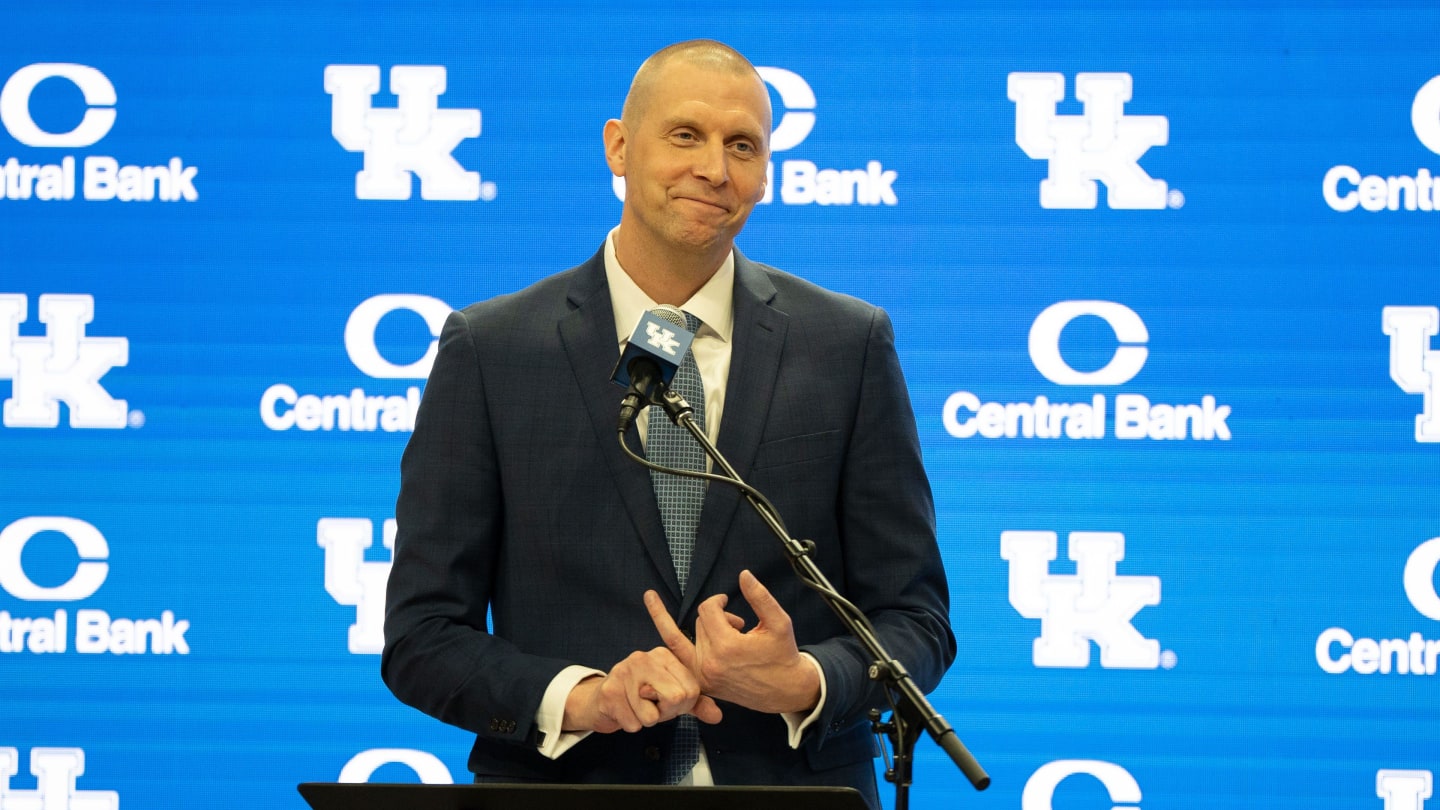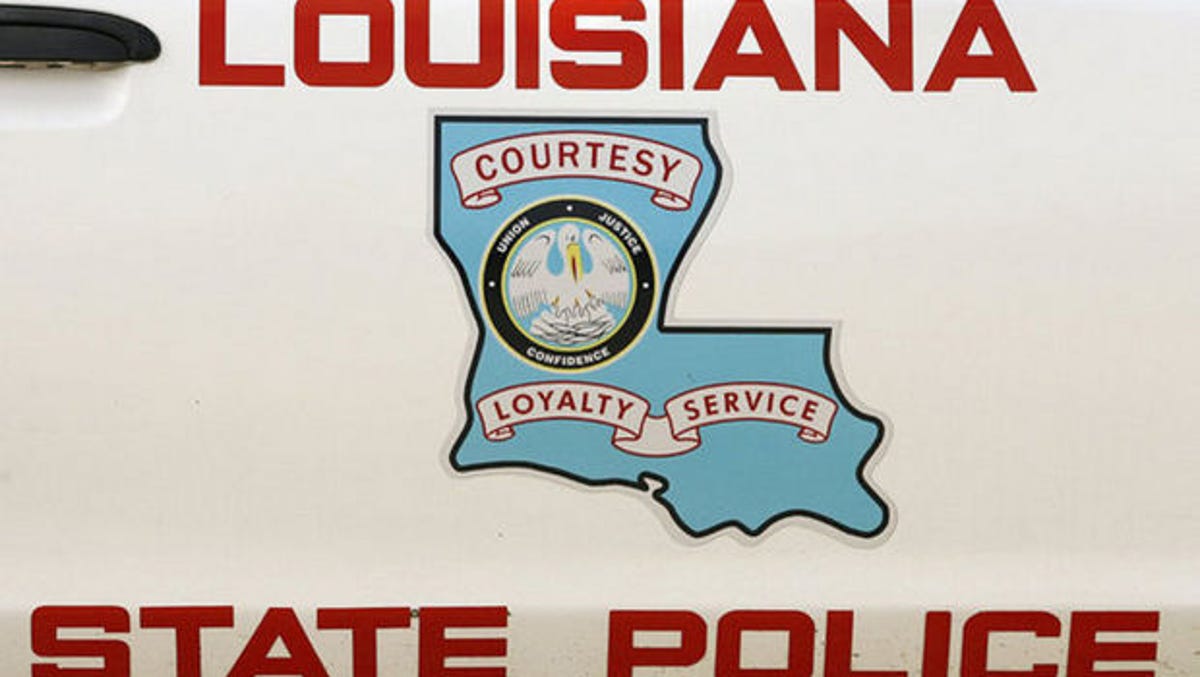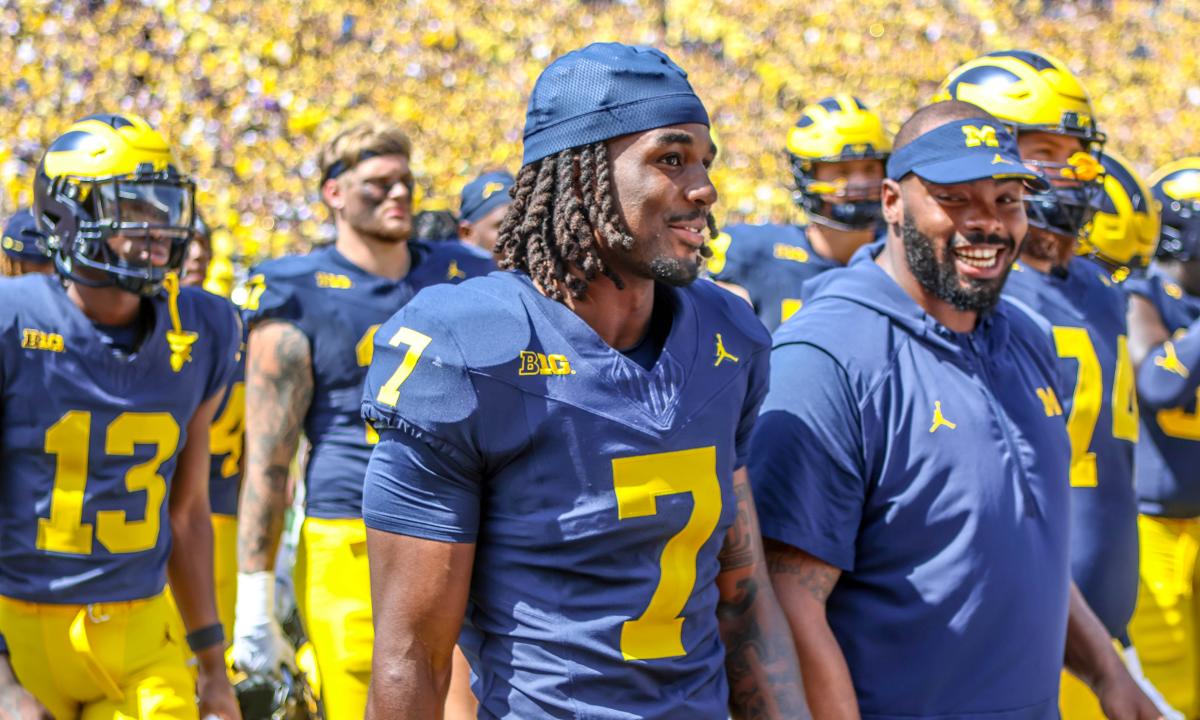North Carolina
A mom owed nearly $102,000 for her son’s stay in a state mental health hospital

Bridget Narsh at her home in Chapel Hill, North Carolina. Narsh’s son has autism, post-traumatic stress disorder, and ADHD. In 2020, he spent more than 100 days at Central Regional Hospital, a state-run mental health facility. The state billed the family nearly $102,000 for the hospitalizations.
Eamon Queeney/KFF Health News
hide caption
toggle caption
Eamon Queeney/KFF Health News

Bridget Narsh at her home in Chapel Hill, North Carolina. Narsh’s son has autism, post-traumatic stress disorder, and ADHD. In 2020, he spent more than 100 days at Central Regional Hospital, a state-run mental health facility. The state billed the family nearly $102,000 for the hospitalizations.
Eamon Queeney/KFF Health News
Bridget Narsh’s son, Mason, needed urgent help in January 2020, so she was offered the chance to send him to Central Regional Hospital, a state-run mental health facility in Butner, North Carolina.
The teen, who deals with autism and post-traumatic stress and attention-deficit/hyperactivity disorders, had started destroying furniture and running away from home. His mother worried for the safety of Mason and the rest of the family.
But children in crisis in North Carolina can wait weeks or months for a psychiatric bed because the state lacks the services to meet demand. And when spots do become available, they are expensive.
The standard rate at Central Regional was $1,338 a day, which Narsh could not afford. So, when a patient relations representative offered a discounted rate of less than $60 a day, her husband, Nathan, signed an agreement.
Mason, now 17, was hospitalized for more than 100 days in Central Regional over two separate stays that year, documents show.
But when requests for payment arrived the following year, Narsh said she was shocked. The letters — which were marked “final notice” and requested immediate payment — were signed by a paralegal in the office of Josh Stein, North Carolina’s attorney general. The total bill, $101,546.49, was significantly more than the roughly $6,700 the Narshes expected to pay under their agreement with the hospital.
“I had to tell myself to keep my cool,” says Bridget Narsh, 44, who lives with her husband and three children in Chapel Hill. “There is no way I could pay for this.”
Medical bills have upended the lives of millions of Americans, with hospitals putting liens on homes and pushing many people into bankruptcy. In recent years, lawmakers have railed against privately operated hospitals, and states have passed laws intended to make medical billing more transparent and limit aggressive debt collection tactics.

Some state attorneys general — as their states’ top law enforcement officials — have pursued efforts to shield residents from harmful billing and debt collection practices. But in the name of protecting taxpayer resources, their offices are also often responsible for collecting unpaid debts for state-run facilities, which can put them in a contradictive position.
Stein, a Democrat running for governor in 2024, has made hospital consolidation and health care price transparency a key issue during his time in office.
“I have real concerns about this trend,” Stein said in 2021 about the state’s wave of hospital consolidations. “Hospital system pricing is closely related to this issue, as consolidations drive up already inordinate health care costs.”
Stein refused an interview request about Mason’s bills, which arrived at the end of 2021 because the North Carolina government suspended debt collection in March 2020 as the nation felt the economic fallout of the COVID-19 pandemic.
Across the nation, states seize money or assets, file lawsuits, or take other steps to collect debts from people who stay at state-run hospitals and other institutions, and their efforts can disproportionately affect racial and ethnic minorities and the poor, according to health care consumer advocates. In North Carolina, officials looking to collect unpaid debt are permitted to garnish residents’ income tax refunds.
Attorneys general must balance their traditional role of protecting consumers from harmful debt collection practices and the state’s obligation to serve taxpayers’ interests and fund services, said Vikas Saini, a cardiologist and the president of the Lown Institute, a Massachusetts-based nonpartisan think tank that advocates for health care reform.
The Narsh case is “the perfect storm of every problem in our health care system,” says Saini, who at the request of KFF Health News reviewed the payment demand letters the family received. Far too often health care is unaffordable, billing is not transparent, and patients end up facing enormous financial burdens because they or a loved one is sick, Saini said.

Bridget Narsh holds one of the letters demanding payment from the North Carolina attorney’s general office. Her son’s service dog, Koko, specially trained to help people with autism, is at her feet.
Eamon Queeney/ KFF Health News
hide caption
toggle caption
Eamon Queeney/ KFF Health News

Bridget Narsh holds one of the letters demanding payment from the North Carolina attorney’s general office. Her son’s service dog, Koko, specially trained to help people with autism, is at her feet.
Eamon Queeney/ KFF Health News
The Narsh family had Blue Cross and Blue Shield health insurance at the time of Mason’s hospitalizations. Bridget Narsh has records showing insurance paid about $7,200 for one of his stays. (Mason is now covered by Medicaid, the state and federal health insurance that covers some people with disabilities and low income people.)
In a written statement, Nazneen Ahmed, a spokesperson for Stein’s office, said state law requires most agencies to send their unpaid debts to the state Department of Justice, which is charged with contacting people who may owe money.
Ahmed directed KFF Health News to the North Carolina Department of Health and Human Services, which oversees Central Regional Hospital.
Bailey Pennington Allison, an agency spokesperson, said in a written statement that officials researched the Narsh case and determined the state had properly followed procedures in billing the family.
The state bases its rates for services on the costs of the treatment, nursing, professional consultation, hospital room, meals, and laundry, Pennington Allison said. Hospital staffers then work with patients and families to learn about their income and assets to determine what they can afford and what they will be charged, she said.
The spokesperson did not address why Mason’s parents were offered, but did not ultimately receive, a discounted rate both times he was admitted in 2020.
Narsh contacted an attorney, who negotiated the bill with the state. In April, her family reached an agreement with North Carolina officials to pay $100 a month in exchange for the state reducing the charges by roughly 96% to about $4,300. If Narsh defaults, however, the deal stipulates she must come up with the original total.
States can take a variety of approaches to debt collection. North Carolina is one of about a dozen that can garnish residents’ income tax refunds, says Richard Gundling, a senior vice president for the Healthcare Financial Management Association, a membership organization for finance professionals.
Gundling says state officials have a responsibility to protect taxpayer money and collect what is owed but that seizing income tax returns can have more severe consequences for people with lower incomes. “There is a balance that needs to be struck to be reasonable,” he says.
With health care a leading cause of personal debt, unpaid medical bills have become a major political issue in North Carolina.
State lawmakers are considering a bill called the Medical Debt De-Weaponization Act, which would curb the ability of debt collectors to engage in “extraordinary collection” such as foreclosing on a patient’s home or garnishing wages. But the current version of the bill would not apply to state-operated health care facilities like the one Mason Narsh went to, according to Pennington Allison.
In a written statement, Stein said he supports legislative efforts to strengthen consumer protections.
“Every North Carolinian should be able to get the health care they need without being overwhelmed by debt,” Stein said. He called the bill under consideration “a step in the right direction.”
Narsh said the unexpectedly high amount of the bill was frustrating, at least in part because for years she struggled to get Mason more affordable, preventive care in North Carolina. Narsh says she had difficulty finding services for people with behavioral issues, a shortage acknowledged in a state report released last year.
Multiple times, she says, she has been left with no option but to take him to a hospital to be evaluated and admitted to an inpatient mental health facility not suitable for people with complex needs.
Community-based services that allow people to receive treatment at home can help them avoid the need for psychiatric hospitals in the first place, Narsh said. Mason’s condition improved after he received a service dog trained to help people with autism, among other community services, Narsh says.

Bridget Narsh shares a cell phone picture of her son and Koko attending school. Her son’s condition has improved since he got the service dog and other community-based services.
Eamon Queeney/KFF Health News
hide caption
toggle caption
Eamon Queeney/KFF Health News

Bridget Narsh shares a cell phone picture of her son and Koko attending school. Her son’s condition has improved since he got the service dog and other community-based services.
Eamon Queeney/KFF Health News
Corye Dunn is the public policy director at Disability Rights North Carolina, a Raleigh-based nonprofit mandated by the federal government to monitor public facilities and services to protect people with disabilities from abuse. The irony, she says, is that the same system that’s ill-equipped to prevent people from falling into crisis can then pursue them with big bills.
“This is bad public policy. This is bad health care,” Dunn says.
KFF Health News, formerly known as Kaiser Health News (KHN), is a national newsroom that produces in-depth journalism about health issues and is one of the core operating programs at KFF — the independent source for health policy research, polling, and journalism.

North Carolina
Tropical weather update for Wilmington: What we can expect and when

The National Hurricane Center continues to monitor a tropical depression over Cuba. It’s expected to become a tropical storm later Saturday, bringing impacts to the Carolinas around the middle of next week.
Heavy rainfall and flooding are the primary impacts expected, according to the National Weather Service in Wilmington.
“Gusty winds are also possible, but it is too early to predict specific impacts in great detail at this time,” the weather service said.
At the same time, there is the potential for heavy rainfall and some flooding associated with front expected to stall inland this weekend.
As of 11 a.m. Saturday, the center of the tropical depression, which would be name Debby if it becomes a tropical storm, was over Cuba and moving west-northwest near 15 mph. The hurricane center said a turn toward the northwest is forecast for Saturday, followed by a northward motion on Sunday and then a slower northeastwardmotion Sunday night and Monday.
Maximum sustained winds were near 35 mph. Slow strengthening is expected throughout the day Saturday. Faster strengthening is possible Sunday, with the storm nearing hurricane strength when it reaches the Florida Gulf Coast, the hurricane center said.
STORM TRACKER: Monitor the latest tropical developments here.
Here’s a look at what we can expect in the Wilmington area, according to the latest briefing from the National Weather Service in Wilmington.
Wind
The probability of tropical storm force winds has increased, especially for the South Carolina coast. The most likely time of arrival of for northeast South Carolina is Tuesday night into Wednesday morning, and for Southeastern North Carolina is during Wednesday morning.
Rain
The potential for significant rainfall exists with 8 to 12 inches possible from near Cape Fear to portions of thenortheast South Carolina coast. Flash flooding and urban flooding are possible. Some rivers, including the North Cape Fear River and the Waccamaw River, could exceed flood stage next week.
INTERACTIVE MAP: Enter your address to see hurricanes, tropical storms that have passed nearby
Marine impacts
Rough surf, including dangerous rip currents, and hazardous marine conditions are expected this weekend and will persist into the upcoming week.
Are you prepared for a hurricane?
Hurricane season runs from June 1 to Nov. 30. Even if this system won’t pose a threat to the NC coast, it’s never too early to be prepared.
GET READY: Are you prepared for a hurricane? Here’s what to know if you live in the Wilmington area.
North Carolina
Tropical Depression Four forms on its way to the Gulf of Mexico

As of the 5 AM update Friday, Tropical Depression Four has formed. Areas along the East Coast including North Carolina need to continue monitoring this system. Winds are at 30 MPH and gusts are up to 40 MPH. The pressure dropped to 1009 mb and is moving to the west at 16 mph. TD 4 is expected to become Tropical Storm Debby over the weekend. Tuesday night and Wednesday are First Alert Weather Days due to the threat to ENC from this system but we may need to adjust the timing as we get closer.
It’ll move slowly before escaping to the north next week. As it moves up the East Coast, there’s a lot more uncertainty about the track and threats. We expect the track of this system to change through the weekend and even into next week. If ENC sees impacts from this system, they’d likely come mid-week. The longer this system stays over land, the weaker it’ll be. It’ll have the chance to strengthen if it moves back over open water, especially if it moves over the warm waters of the Gulf Stream.
The speed of this system is just as important as the strength. The quicker it moves through, the less rain piles up. If it slows down or stalls, higher rainfall amounts would be expected. Our river levels have dropped a bit since July’s wet weather, but levels are still higher than what you’d find in a typical August.
This is a reminder that we are heading into the heart of the hurricane season and to make sure your emergency supplies are ready.
Stay with WITN and WITN.com as we continue to track this system over the coming days and monitor the 2024 Atlantic hurricane season.
Copyright 2024 WITN. All rights reserved.
North Carolina
Alabama man on work trip stops to buy $3 quick pick Powerball ticket, wins 6-figure jackpot
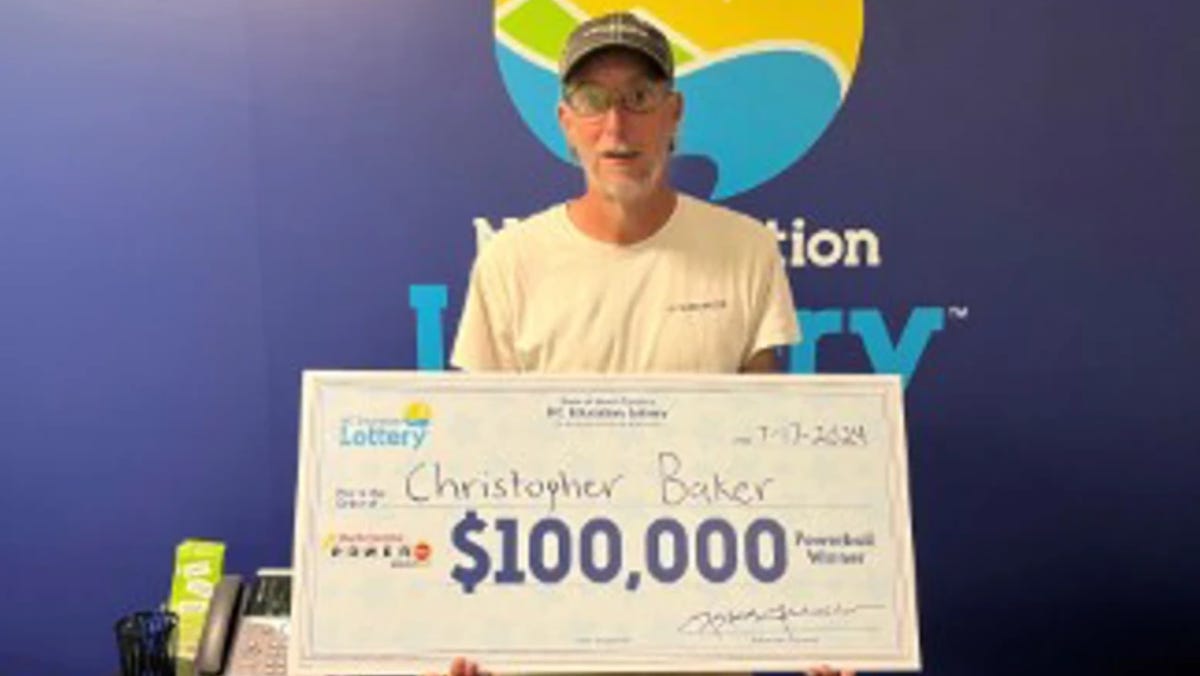
Christopher Baker of Leesburg, Alabama was on a work trip in Hickory, North Carolina, when he thought he’d try his luck on a lotto game. It turned out to be a lucrative Powerball win.
An Alabama man on a work trip in North Carolina bought a $3 Quick Pick Powerball ticket on a whim and walked away with a six-figure windfall.
Christopher Baker of Leesburg in northeastern Alabama bought his lucky ticket in July in Hickory, North Carolina, where had been traveling for work, according to Powerball.
When the numbers were drawn, Baker says he had to do a double-take when he realized he had a $100,000 winning ticket. He had matched four white balls and the red Powerball, which would have been $50,000, but a 2X multiplier doubled the win and the disbelief.
“I just kept looking at it to make sure I was reading it right,” he laughed, according to Powerball. “I told my family but they didn’t believe me. either.”
Baker, who called his win “a shocker.” said he plans to save his winnings to buy a house.
Baker will take home $71,501 after federal and state taxes are withheld.
How to play the Powerball
In order to purchase a $2 Powerball ticket, you’ll have to visit your local convenience store, gas station or grocery store − and in a handful of states, you can purchase tickets online.
To play, you will need to pick six numbers in total to mark on your ticket. Five numbers will be white balls ranging from numbers 1 to 69. The Powerball is red and one number which is between 1 and 26.
If you want to increase your chances of winning, you can add a “Power Play” for $1 which increases the winnings for all non-jackpot prizes. This addition can multiply winnings by 2X, 3X, 4X, 5X, or 10X.
Players can also ask a cashier for a “Quick Pick” where a cashier will give you a computer generated numbers on a printed Powerball ticket.
Drawings are held on Monday, Wednesday and Saturday nights. If there’s no jackpot winner, the cash prize will increase by millions.
Where to purchase tickets
Tickets can be purchased in person at gas stations, convenience stores and grocery stores. Some airport terminals may also sell lottery tickets.
You can also order tickets online through Jackpocket, the official digital lottery courier of the USA TODAY Network, in these U.S. states and territories: Arizona, Arkansas, Colorado, Idaho, Massachusetts, Minnesota, Montana, Nebraska, New Hampshire, New Jersey, New Mexico, New York, Ohio, Oregon, Puerto Rico, Texas, Washington D.C. and West Virginia. The Jackpocket app allows you to pick your lottery game and numbers, place your order, see your ticket and collect your winnings all using your phone or home computer.
Jackpocket is the official digital lottery courier of the USA TODAY Network. Gannett may earn revenue for audience referrals to Jackpocket services. Must be 18+, 21+ in AZ and 19+ in NE. Not affiliated with any State Lottery. Gambling Problem? Call 1-877-8-HOPE-NY or text HOPENY (467369) (NY); 1-800-327-5050(MA); 1-877-MYLIMIT (OR); 1-800-981-0023 (PR); 1-800-GAMBLER (all others). Visit jackpocket.com/tos for full terms.
-
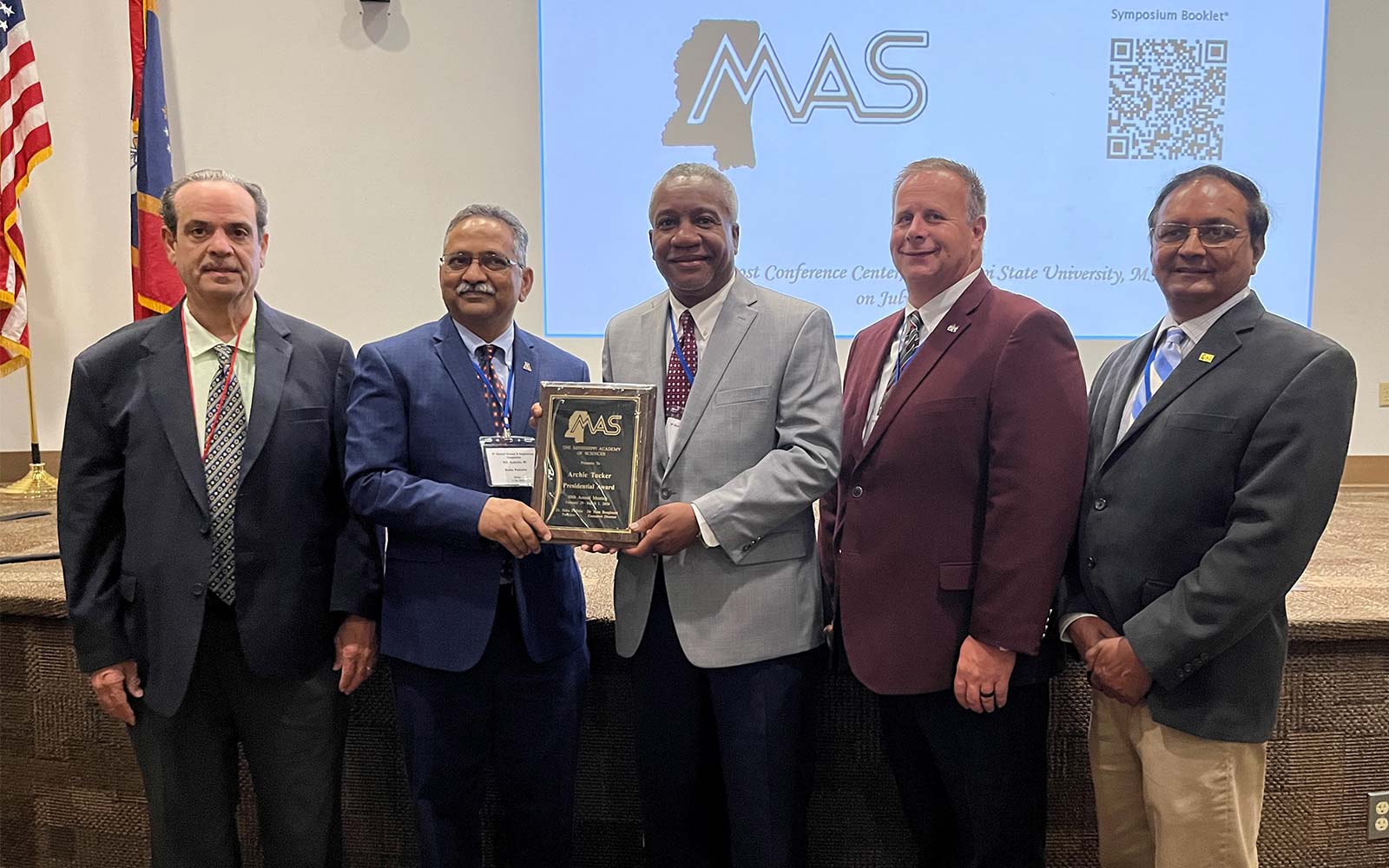
 Mississippi4 days ago
Mississippi4 days agoMSU, Mississippi Academy of Sciences host summer symposium, USDA’s Tucker honored with Presidential Award
-

 World1 week ago
World1 week agoTyphoon Gaemi barrels towards China’s Fujian after sinking ship off Taiwan
-

 News1 week ago
News1 week agoVideo: Biden Says It’s Time to ‘Pass the Torch’ to a New Generation
-

 Politics6 days ago
Politics6 days agoRepublicans say Schumer must act on voter proof of citizenship bill if Democrat 'really cares about democracy'
-

 News1 week ago
News1 week agoVideo: Kamala Harris May Bring Out Trump’s Harshest Instincts
-

 News1 week ago
News1 week agoWho Can Achieve the American Dream? Race Matters Less Than It Used To.
-
World6 days ago
More right wing with fewer women – a new Parliament compendium
-

 Politics1 week ago
Politics1 week agoHouse unanimously votes to create Trump assassination attempt commission

